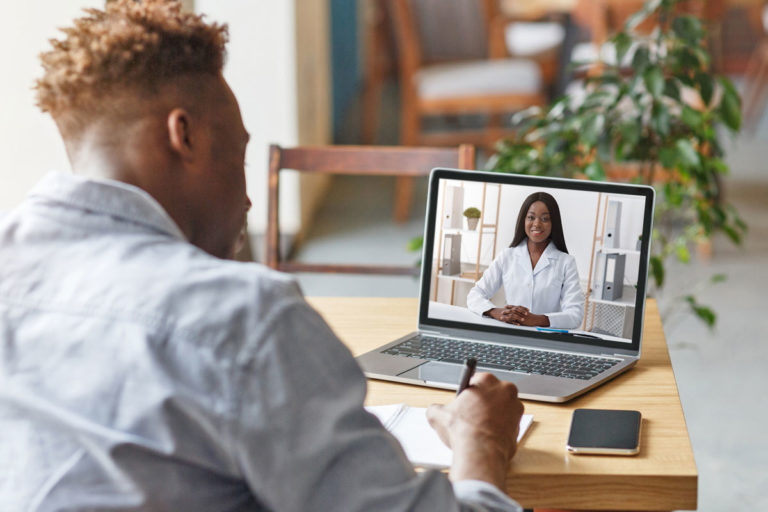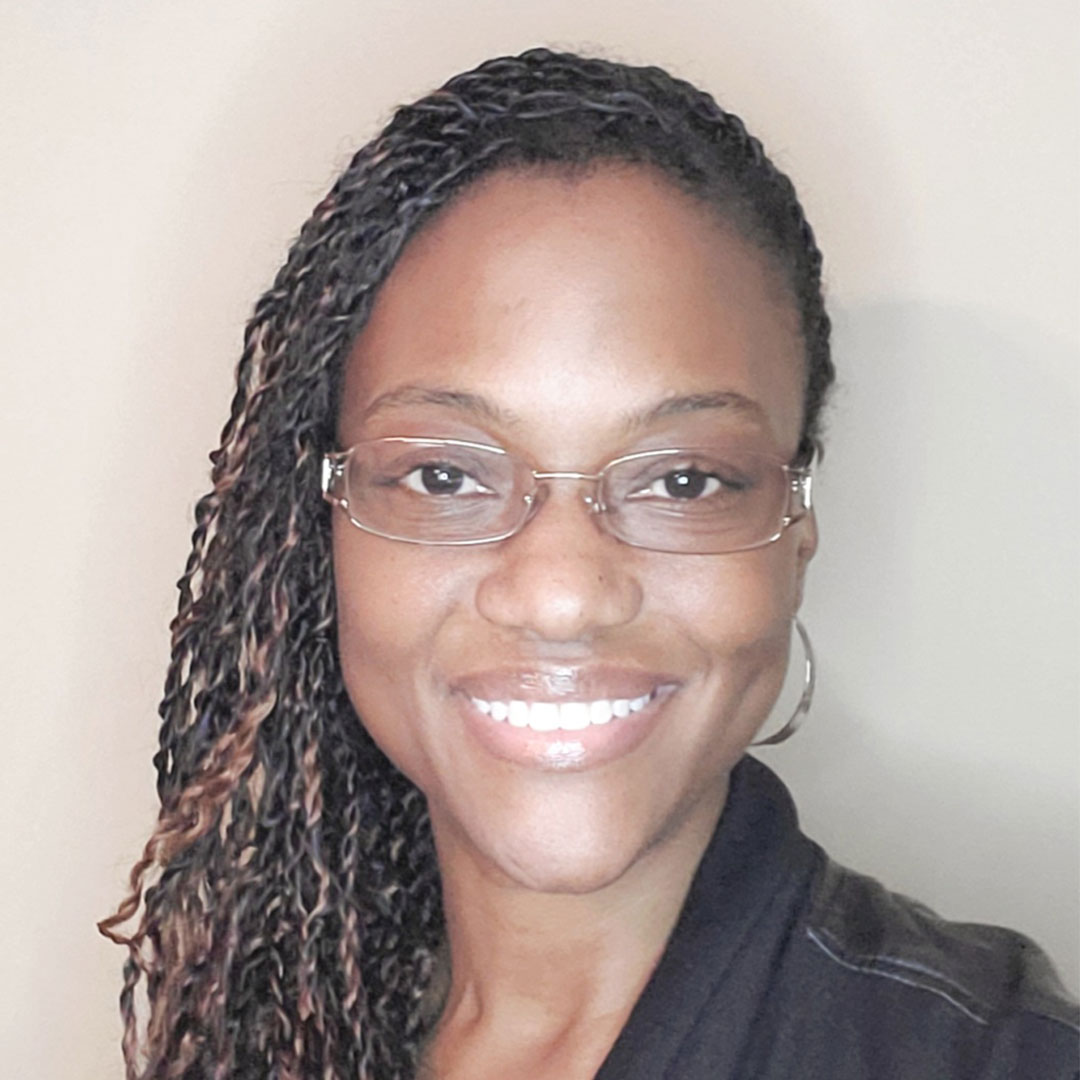Table of Contents
When students can’t find healthcare providers who resemble them, their beliefs and their culture, the lack of diversity can prevent them from getting the healthcare they need.
Today, 13.4% of the U.S. population identify as Black or African American. Of those, more than 17% reported having a mental illness in the past year. That’s over 7.8 million people. In higher ed, research published in the Journal of Adolescent Health found that 40% of Black college students requested campus health services. And yet, only 11.7% of staff working at college counseling centers are Black. In the medical field, only 5% of physicians are Black. This leaves a large gap in healthcare for Black and African American people. With a care team comprised of 50% providers who are Professionals of Color and/or female, TimelyCare is committed to offering a telehealth experience that enables students to choose the right provider at the right time.
The healthcare impact of COVID-19
COVID-19 accentuated the disparity in medical care — demographics indicate Black people are nearly three times more likely than white people to contract the virus and twice as likely to die from it. Reports show that doctors in the medical profession downplayed Black patients’ complaints of pain, prescribed weaker pain medication and withheld cardiac treatments from Black patients who needed them. According to the New York Times, research suggests that “the decisions are the result of ingrained assumptions, cultural ignorance and hostile attitudes toward African-Americans.”
Mental health concerns in the Black community
Given the realities of modern American life, Black students are likely to have experienced trauma. Many are watching their families and friends struggle with COVID-19 — some have lost loved ones. Making things worse, psychiatric problems for Black students are often disciplined rather than treated. These issues coupled with the lack of Black healthcare professionals are understandably a part of why Black students distrust the healthcare system.
Also, negative attitudes toward people who live with mental health conditions are particularly strong in the Black community. One study showed that 63% of Black people believe that a mental health condition is a sign of personal weakness. As a result, many people in the Black community find it challenging to discuss the topic of mental health. This fear prevents minority students from seeking mental health care when they need it. Even with sufficient and accessible resources on campus, some Black students may be hesitant to reach out.
How representation makes a difference
Studies show that Black patients have better results when they are treated by Black healthcare workers. And because there is a direct correlation between health and wealth, representation in healthcare leads to better health and fewer medical bills. In other words, increased diversity in medicine with more Black doctors means more Black lives are saved — and the racial wealth gap shrinks. Colleges and universities can be part of the solution by promoting Black representation in mental health services and considering these initiatives:
- Create and expand spaces and programming aimed at breaking down mental health stigmas.
- Focus on creating a diverse workforce — the recruitment of Black counselors and mental health professionals.
- Fund anti-racist and trauma-informed mental health practices.
Of course, these recommendations require more funding than colleges and universities received prior to the pandemic. Given the possibility of spending cuts in response to declining new student enrollments and state budget shortfalls, the ability to build and expand critical initiatives is at risk.
The National Association of Financial Aid Administrators (NASFAA) is calling on the government to take “five big steps” to provide students and colleges with more assistance as higher ed recovers from COVID-19. NASFAA hopes for a repeal of the Department of Education’s requirement that students meet Title IV eligibility to receive CARES Act funding. Even while the CARES Act provided nearly $14 billion and another recently passed omnibus bill allocated another $23 billion for higher education institutions, more state and federal funding are needed to help students remain enrolled. This could help prevent cuts to mental health programs, and would also provide greater access to necessary technology and internet service so that students could access mental health services remotely. Otherwise, institutions will need to look for alternative ways to support and fund student services.
Discover how telehealth improves student well-being
Steps schools can take to create a culturally competent campus
In the meantime, there are steps colleges and universities can take to create a culturally competent campus:
1. Talk about racism.
Race is on the minds of students, and they want to talk about it. Even so, students and professors are not always comfortable discussing race. Diverse populations show up to the conversation with different histories, opinions, feelings, misconceptions and knowledge. And, talking about race exposes our vulnerabilities: students fear being misjudged by their peers or their instructors, while professors worry about getting called out on social media or in teaching evaluations for making mistakes.
People of color take the brunt of the emotional labor that these conversations evoke, reinforcing unequal power dynamics in the community. Finding a shared language can feel impossible. But that doesn’t mean we can pretend racism doesn’t exist. It’s important that we discuss the social policies and institutional practices that advantage some groups at the expense of others. Done right, conversations about race can be empowering.
2. Build cultural competency.
The National Education Association defines cultural competence as “having an awareness of one’s own cultural identity and views about difference, and the ability to learn and build on the varying cultural and community norms of students and their families. It is the ability to understand the within-group differences that make each student unique while celebrating the between-group variations that make our country a tapestry.”
For educators and campus administrators, ensuring cultural competency is an important aspect of the role. Whether the goal is to improve the inclusion of ethnic minorities, culturally diverse students, or to educate students on the benefits of cultural diversity on campus, consider these strategies:
- Offer cultural organizations and clubs. (i.e. African American, LGBTQ, Hispanic, Latino, etc.)
- Provide faculty with resources and training for diverse learning environments and mentoring.
- Engage cultural minority groups, faculty and staff to provide feedback on diversity and inclusion tactics.
- Focus on all aspects of campus diversity, including curriculum, activities and campus life.
- Educate the community on the benefits of a multicultural campus.
3. Increase mental health awareness.
At a time when employees and students alike are struggling with the changing landscape of higher ed, a clear and demonstrated commitment to mental health awareness from senior leadership has never been more important. By prioritizing investment in resources, staffing, policies and programmatic efforts that put student mental health on par with physical health, senior leaders can support Black students. And, by deploying scalable mental health awareness and education programs as part of the academic experience, colleges and universities can cast a wide net around all students and ensure the community has a shared language and understanding of the issues.
Dr. Stacia’ Alexander, mental health clinic coordinator at Paul Quinn College, recently shared her perspective on the unique challenges faced by students at Historically Black Colleges and Universities during the pandemic, including mental health. “Many Black youths do not seek out counseling because they view it as a sign of weakness,” said Dr. Alexander. “We want students to recognize the importance of preventive care so that if they do experience a crisis, there is no stigma or fear in seeking help.”
The pandemic is forcing Americans to grapple with the prevalence of racism and healthcare disparities across the country. Public and private institutions have been impacted by these realities — and that must be remedied. To find an antidote, there must be an increase in Black representation in healthcare, which means a great emphasis on medical education and health sciences in underserved communities. Additionally, high schools, colleges and universities can create greater cultural competency to improve diversity and inclusion efforts.
TimelyCare’s commitment to increasing healthcare representation in higher education
TimelyCare is devoted to increasing representative healthcare support for colleges and universities. A larger Black healthcare workforce means more Black lives are saved due to less debilitating health conditions. The mission of TimelyCare is to improve the well-being of college students by making virtual medical and mental healthcare accessible anytime, anywhere. This mission extends to all college students, including students of color from all types of backgrounds and experiences, which is why TimelyCare is constantly working to expand the diversity of its providers.
Supporting students in this way can increase campus well-being, engagement and retention. If you would like to learn how telehealth can improve your campus’ quality of care for African American students as well as your student body across all socioeconomic determinants, contact TimelyCare.
Together, we can make a difference.






